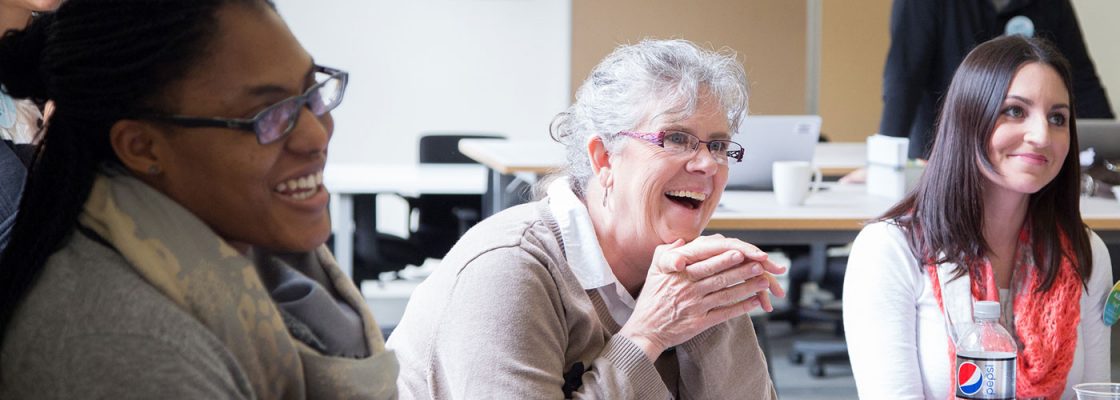We love experts at CCI. Consultants with decades experience help us develop program content, and their perspective and stories give form and meaning to practices that sometimes feel conceptual. In fuzzy areas, like “engaging” patients, expert consultants make sure we don’t lose the big picture.
But it’s our peers who deliver what we really need when we’re learning. Think about how we seek out guidance on complex challenges like dating, managing family obligations, or professional networking. Yes, there are experts in those fields, but our peers provide a dose of pragmatism layered with understanding that makes advice a bit easier to digest — and more actionable.
The “peerless” value of peer learning crystallized for me during our first Catalyst workshop this cycle. Catalyst is CCI’s capability building program in design thinking and innovation. In the program’s sixth cycle, nine Catalyst alumni are playing the role of coach — walking teams through the design thinking methods, and modeling the mindsets and behaviors that the teams will learn to internalize over the course of the program.
Our Catalyst program has trained more than 190 alumni from across California, Oregon, Hawaii, Colorado and New Jersey. It is inspiring to see how many alumni want to give back to the program as a coach. To acknowledge and show our appreciation for their commitment, we provide the sponsor organizations a small stipend to offset the coach’s time away from their internal responsibilities. We also have a “master coach” with 25 years of experience in human-centered design who supports the coaches as a resource and nurtures their development throughout the six months.
Until this workshop, I hadn’t realized one of the most valuable attributes that peer coaches offer in an adult learning environment: they are great at leading with humility. When you are an expert, it isn’t always natural to lead with humility since people often expect you to show how something is “done.” This can be a tough approach when teaching human-centered design, because learners quickly realize that practicing the methodology can be as much of an art as it is a science, and each design practitioner offers unique perspective on how they would approach the work. Peer coaches instead often approach teaching by talking about their own trials AND errors. This is what I tried; this is what happened; and this is what I’d do differently next time. Learners then get to decide what resonates with them, and file away the rest, alleviating pressure to internalize everything coming out of the firehose during intensive workshops.
For the first time in Catalyst, alumni are leading training modules and sharing the ways they’ve applied design thinking methods to tackle problems in the safety net. As alumni spoke about design thinking — something they’ve had anywhere from one to four years of experience practicing — they were peppered with questions. In the program feedback, participants wanted to hear more from the alumni:
- “Our coach is very helpful and integral to how much we are learning”
- “More interaction with the coach”
- “Our coach helped keep us on track (which is harder than it sounds!)”
- “She made us really dig into our pitch”
Why were the Catalyst alumni so in demand? Because peers offer something that many consultants cannot. They are deeply familiar with the resource-constrained conditions that safety net organizations face. They understand the governance practices, business model, and politics at play when people are trying to initiate change. They also come to their work with a strong connection to patients and communities. This tacit knowledge is all the stuff an outside consultant would rarely come in knowing, and would take them time to empathize with, let alone understand.
Before our next workshop in April, teams will continue to build relationships with alumni coaches. They hold one-on-one coaching calls and share their experiences during virtual office hours. They balance encouragement to try new things with empathy and pragmatic advice — those gifts we all appreciate before trying something for the first time.
Knowing this, how might CCI cultivate more peer “coaching” relationships in our programming?
Find this useful or interesting? We’re constantly sharing stuff like this. Sign up to receive our newsletter to stay in the loop.

